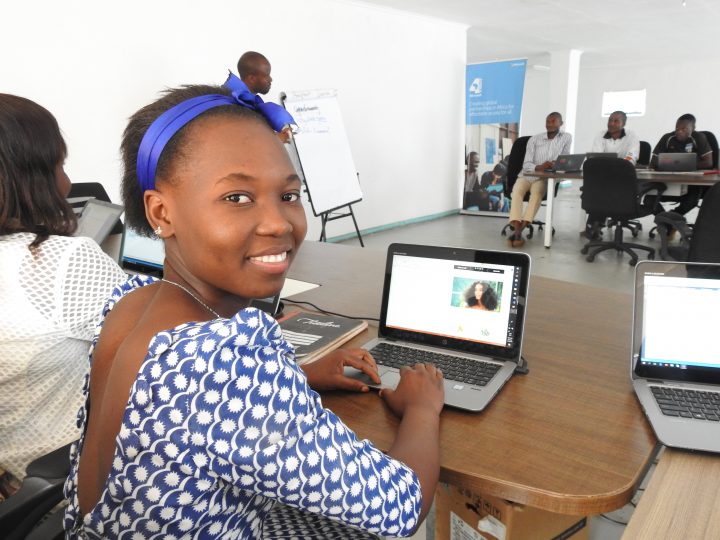
Henriette Kiwele Kiyambi, age 21 from the Democratic Republic of Congo, learning to code at the App Factory in Dzeleka refugee camp in Malawi © UNHCR/Tina Ghelli
UNHCR is looking for innovative ways to create a self-managed Digital Wallet for refugees and introduce Document Verification Registers (e-Registry and e-Apostille) of Persons of Concern to implement its strategy on Digital Identity and Inclusion and contribute to offering new opportunities for refugees.
If you are a qualified service provider interested in implementing Blockchain or other appropriate technology options in support of a Trust Scheme for refugees, you have until the 31st of January 2019 to answer UNHCR request for proposals and submit your ideas!
Access of Refugees and Asylum-Seekers to their Data
Currently, UNHCR holds identity records of more than 8 million refugees globally. UNHCR’s Population Registration and Population Management EcoSystem (PRIMES) records the bio data (or foundational data), such as names, birth date, nationality, place of residence, as well as a passport size picture and biometric imprints. None of these data elements is currently accessible, neither in parts nor in total to refugees or asylum seekers.
As UNHCR intends to develop a specific application for the management of currently more than 6,700 students in 50 countries that receive tertiary education grants (DAFI), the UN Refugee Agency is looking for technical ideas on how refugees that apply for scholarships and those that are awarded scholarships, would be able to manage their own digital wallets, comprising key documents such as diplomas or degree certificates.
Enabling Self-Management of Data by Providing Trust Services
The High Commissioner has expressed his vision that every refugee should have his unique digital identity. But for a digital identity to be practical and useful, it has to be recognized by other main actors in our societies: authorities, institutions of higher learning, businesses hence creating a recognized identity that empowers the individual and is an enabler for socio-economic inclusion. In the identity model put forward by UNHCR, the individual refugee has agency over and should be managing his/her identity, while UNHCR puts its institutional weight behind the individual’s identity.
Public documents frequently need to be used across borders – especially in the case of asylum seekers and refugees. But to use such documents in another country, their origin must be authenticated, traditionally by an Apostille which is a specialized certificate issued by the Secretary of State. The digitalization of public services and the introduction of e-Governance has brought about the introduction of an electronic Apostille Program (e-APP) by some States, to authenticate the origin of public documents.
UNHCR is now looking to offer a similar service to refugees and asylum seekers. Blockchain distributed ledgers (or other appropriate technologies) would host the e-Registry consisting of certified documents relating to all data of UNHCR data subjects, such as individual asylum seekers, refugees stateless and other forcibly displaced persons.
Edit – UNHCR organised on November 27th in UN City Copenhagen an all-day pitching event in UN. The event gave bidders the opportunity to present their approach and engage in a dialogue with representatives of the UN Refugee Agency before handing in their full proposals. If you were not able to attend, you can find here a link to the explanatory note that recap the event, including video link to the sessions.
